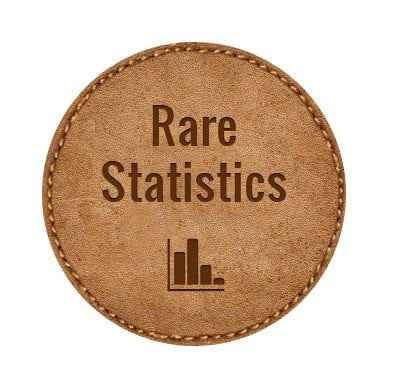Today, February 28th, is Rare Genes Day. Here are some facts about rare diseases. See the thing is, while it's not uncommon to have a rare disease, they are so different and we are so spread out, that most doctors are simply not familiar with them or their treatments. So wear your jeans today for rare genes day. And here are some interesting (to me, anyway) facts courtesy of globalgenes.org
Although rare and genetic diseases, and many times the symptoms, are uncommon to most doctors, rare diseases as a whole represent a large medical challenge. Combine this with the lack of financial or market incentives to treat or cure rare diseases, and you have a serious public health problem.
Here are a few statistics and facts to illustrate the breadth of the rare disease problem worldwide.
- There are approximately 7,000 different types of rare diseases and disorders, with more being discovered each day
- 30 million people in the United States are living with rare diseases. This equates to 1 in 10 Americans or 10% of the U.S. population
- Similar to the United States, Europe has approximately 30 million people living with rare diseases. It is estimated that 350 million people worldwide suffer from rare diseases
- If all of the people with rare diseases lived in one country, it would be the world’s 3rd most populous country
- I
 n the United States, a condition is considered “rare” it affects fewer than 200,000 persons combined in a particular rare disease group. International definitions on rare diseases vary. For example in the UK, a disease is considered rare if it affects fewer than 50,000 citizens per disease
n the United States, a condition is considered “rare” it affects fewer than 200,000 persons combined in a particular rare disease group. International definitions on rare diseases vary. For example in the UK, a disease is considered rare if it affects fewer than 50,000 citizens per disease - 80% of rare diseases are genetic in origin, and thus are present throughout a person’s life, even if symptoms do not immediately appear
- Approximately 50% of the people affected by rare diseases are children
- 30% of children with rare disease will not live to see their 5th birthday
- Rare diseases are responsible for 35% of deaths in the first year of life
- The prevalence distribution of rare diseases is skewed – 80% of all rare disease patients are affected by approximately 350 rare diseases
- According to the Kakkis EveryLife Foundation, 95% of rare diseases have not one single FDA approved drug treatment
- During the first 25 years of the Orphan Drug Act (passed in 1983), only 326 new drugs were approved by the FDA and brought to market for all rare disease patients combined
- According to the National Institutes of Health Office of Rare Disease Research, approximately 6% of the inquiries made to the Genetic and Rare Disease Information Center (GARD) are in reference to an undiagnosed disease
- Approximately 50% of rare diseases do not have a disease specific foundation supporting or researching their rare disease
If God had wanted me otherwise,
He would have created me otherwise.
~Johann von Goethe

it’s a great post. The info is good to know!
ReplyDeleteI look forward to reading more. Its an informative topic. It help me very much to solve some problems. Its opportunity are so fantastic and working style so speedy. I think it may be help all of you. Thanks.
Cardiology Hospitals